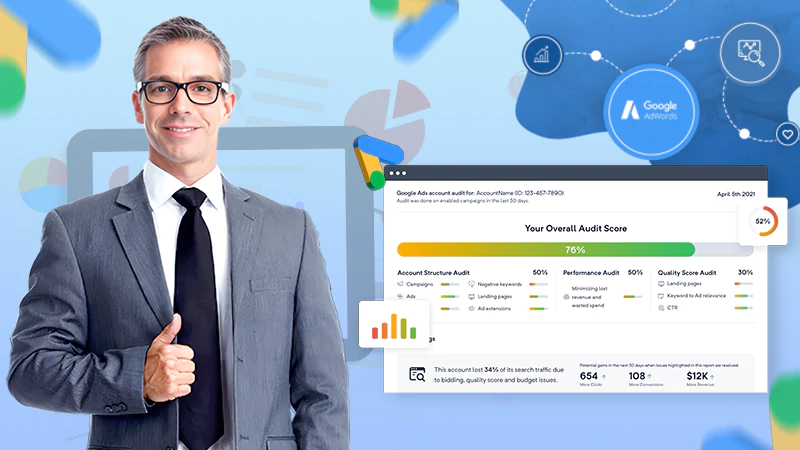6 Finance Tips for Small Business Owners
It is essential for all small business owners to manage finances properly to ensure their profitability and success. If you wish to scale up your small business in the future, you cannot ignore the finance department. Finance management is not only about saving money, but it also plays a key role in financial planning, economic stability, funds allocation, critical financial decisions, and much more.
As the financial experts Guthman and Dougal have explained, this activity concerns planning, controlling, raising, and administrating funds used in a business.
Lack of financial knowledge and management often becomes the main reason behind business failures. Therefore, if you are a small business owner, you must have extensive knowledge of financial accounting and management.
Also Read: Top 5 Attributes to makes a Business Future-Ready
Finance Management Tips:
Here are some effective finance tips that will help you run your small business smoothly and climb up the ladder of success:
Create a Budget Plan
There is no denying the fact that we all have limited resources. Creating a budget plan for your small business is not an option but a necessity. Therefore, your first step towards effective money management is to create a budget plan. If you have a structured financial plan, you can easily track your performance and activities over a specified time and make informed financial decisions.
Also Read: Simplify Your Finances: A Guide to Direct Deposit Forms
In addition, you will need strong money management skills to manage the finances of your small business. You can develop these financial skills through an online MBA accounting degree program. With an online degree, you can easily manage time between your business and studies. Later, you can apply extensive knowledge about accounting and finance to your small business and make great progress.
Keep Your Personal and Business Finances Separate
The most common mistake most small business owners make is that they start treating their business’s money as their own. Mixing funds can have serious consequences. Business owners end up mixing their personal and business funds in several ways. Some of them are as follows:
- Having the same bank account for your personal and professional expenses and needs.
- Depositing money from your business bank account to pay for your personal expenses.
- Transferring money between your personal and business account repeatedly without any documentation.
- Paying for your business expenses using your personal credit card to score points.
Here you will get the idea of the business expenses and pros of instant approval of credit card.
It is not only sloppy to mingle your personal and professional finances, but it can be illegal, depending on your location. Therefore, always remember to draw a line between your business and personal living expenses. Because if you fail to take care of that, it may affect your business’s health.
Create an Emergency Fund
All businesses have ups and downs. If you are a small business owner, be prepared to face setbacks but remember to get back up. However, you must always have alternatives to deal with unfavorable circumstances. An emergency fund is a cash reserve that is specifically meant to be set aside for financial emergencies or unexpected expenses, such as medical emergencies, home repairs, etc. Below are some of the major advantages of having an emergency fund for your small business:
- Emergency funds are helpful for business owners who have debts to clear. It will help you avoid borrowing more.
- It will provide financial safety for unforeseen circumstances/mishaps.
- It will keep you from making bad financial decisions for your small business.
- You will not spend your money recklessly and will eventually save more.
Pay Yourself
While you work day and night tirelessly for the success of your small business, remember to acknowledge your own efforts and the hard work you put into your business. Reward yourself for the time and energy you give to your business.
Business owners often forget to pay themselves a monthly salary after managing all the other funds for the business’s growth. However, you must always remember that you’re a part of the business, and you deserve to be rewarded for your dedication.
Some benefits of paying yourself first as a business owner are as follows:
- It will help you save more money.
- You will have the opportunity to grow your wealth by investing the saved money.
- Greater wealth means greater financial security for the figure.
Another question that may arise in small business owners’ minds is how much you should pay yourself from your monthly income. Paying 10-15% of your monthly income is generally a good rule of thumb. However, it also greatly depends on your expenses, debts, and numerous other financial responsibilities.
Invest in Growth

Saving is great, but a business cannot flourish solely by saving money. If you want your small business to become a success, be sure to invest in the growth of your business. Investing in your business contributes to your economic growth. Business owners can add to their stock of capital through investment. Here are some major key benefits of business investments:
- Investing in new services or products can become a source of increased sales and reduced costs.
- It also helps improve the profitability of your small business and aids in expanding your network.
- Reinvestment of profits in your business ensures steady growth leading to long-term success.
Therefore, only saving money will not bring you desirable results. Make smart investment decisions for your small business, and watch your small business scale up.
Cut Down Your Costs
The sustainability and profitability of your small business are possible through cost reduction. By cutting down your unnecessary expenses, you can maximize the cash flow. You can also develop new products and services, which will aid in the growth of your small business. The following are some effective ways to reduce costs:
- Instead of working in an office, move to remote work.
- Use a modern mode of marketing, i.e., online marketing.
- Regularly track your expenses and stick to the budget plan you have created.
- Manage your fixed and variable costs diligently.
Conclusion
Managing finances plays a significant role in the success of a business. All your hard work and effort may turn to dust if you fail to manage your finances. One of the major reasons for massive business failures is the business owner’s negligence towards the finances. Therefore, learning effective money management skills is crucial if you want your small business to flourish. Cost reduction, reinvestment, saving, budgeting, etc., are some main strategies that help in finance management.
The Challenges and Benefits of Removing Negative Online…
Unlock the Simplest Way to Access LaSRS Login…
Strategic Wins: How SafeOpt Can Boost Your Online…
5 Reasons Why Marketing Matters in Business?
Google Ads: What Are the Basic Checklists to…
The Crucial Role of Press Releases in a…
8 Best Tech Tips to Implement for Better…
Fax Machines in the Digital Age: A Sustainable…
Breaking Barriers: The Power of Business Translation Services
Why Do Businesses Need a Dedicated Mobile App?
The Role of Onboarding in Improving Employee Retention…
3 Major Benefits of Onsite IT Support












